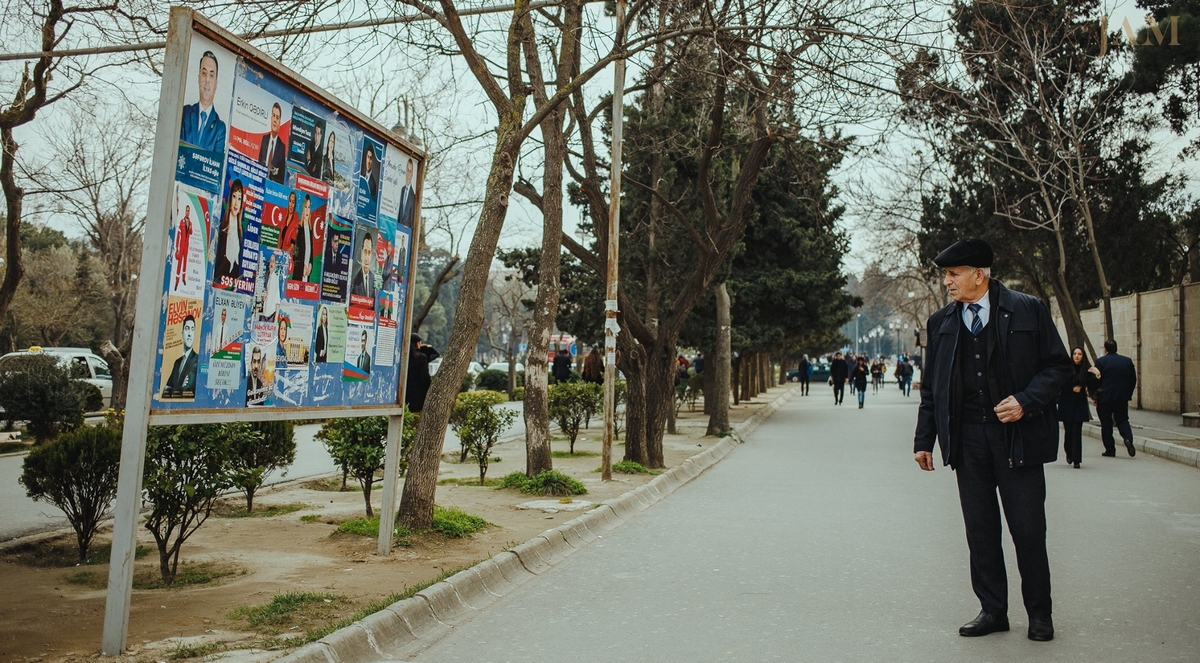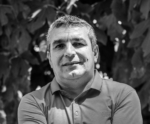Parliamentary elections in Azerbaijan: what’s happening and why it’s important
A
zerbaijan is preparing for snap parliamentary elections which will be held on February 9. As always, they will take place on a majoritarian system, which, according to many experts, creates opportunities for the ruling party.
The country has experienced an unusually active pre-election period:
• More than 1300 candidates are registered, that is, more than 10 people per one seat in parliament (a total of 125 seats).
• Instead of being met with the traditional apathy and sayings such as “they’d choose the same candidates without you,” this election has seen an unusual liveliness amongst the Azerbaijani population.
• Candidates are knocking doors with increased agitation.
This time around, they are not airing the pre-election debates on television—apparently that’s why they are being held on social media.
Supporters of one of the candidates even staged a bike ride, with participants wearing clothes with photos and slogans.
What is happening and why is it important?

Snap elections and agitation beneath the surface
At the end of 2019, the ruling presidential party New Azerbaijan proposed to dissolve and re-elect the parliament (Milli Məclis), explaining that the current makeup does not comply with the president’s policy. The parliament almost unanimously voted its own dissolution.
The constitutional court approved the decision, and early elections were set for February 9th, although the constitution outlines a completely different procedure for the dissolution of parliament.
• Will the Azerbaijani parliament be dismissed and snap elections held? Answer on 2 December
The date of the election was therefore moved from the end of 2020 to the beginning.
The authorities, contrary to what some feared, did not interfere in the registration of opposition and independent candidates. However, they decided not to broadcast the debate on public television.
The rest of the television channels — all of which are controlled by the government — have been advertising the ruling party since the dissolution of the parliament. As a party registered in more than 60 districts, New Azerbaijan was given free airtime, which it refused. For other candidates, they announced prohibitively expensive broadcast prices.
The National Assembly of Azerbaijan, or Milli Məclis is a unicameral parliament, where 125 deputies are elected every five years on the basis of a majoritarian electoral system – one representative from each of the 125 districts. Thanks to the majority system, the ruling party, New Azerbaijan, ensures the participation of its own candidates in each district, in order to occupy the majority of seats.
The parliament may limit the power of the president, but in its entire history it has never used this right. At the moment, a deputy’s salary is about $1,000, plus numerous benefits and perks.
Most of the parliamentary seats have been held by the presidential party New Azerbaijan since 1995. Under the previous president, Heydar Aliyev, the opposition always represented an absolute minority in parliament.
Each time, in the parliamentary elections, international observers reported fraud, and part of the results were thrown out, while repeat votes were held.
Now there are 69 deputies from the New Azerbaijan Parliament, 53 non-partisan deputies (also loyal to the authorities) and three people from little-known parties. There has been no opposition in parliament since 2010.
In 2010, the opposition did not go to parliament, and in 2015, they completely boycotted the elections.
• Why the proportional electoral system is so important for Georgia
What is the opposition in Azerbaijan
In recent years, the opposition in Azerbaijan is represented mainly by three large and well-known parties – the Popular Front Party of Azerbaijan (PFPA), Musavat and REAL.
The number of registered members in opposition parties ranges from three to 60 thousand, while the ruling party registered 740 thousand.
Ordinary citizens are often hesitant to advertise their membership in opposition parties, as this can lead to problems – for example, a person seen at an opposition rally may lose his job.
In 2019, the opposition in Azerbaijan was more active than in previous years. Several large rallies took place, including several unauthorized ones, which the authorities used severe measures to suppress.
• Several dozen detained at opposition rally in Baku
Joining forces
Of the more than 1300 candidates listed on the CEC website, the vast majority of them are registered as “independent.” However, this does not mean that they are all truly independent.
• 31 of the more than 1000 “independent” candidates are members of the Republican Alternative (ReAl) party, which is not officially registered. Its leader, Ilgar Mammadov, former political prisoner, cannot participate. He has not yet been convicted, despite the demands from the European Court.
• 16 are from the “Movement” group. This is a recently created association of socially active youth.
• 10 candidates are current parliamentary members.
• It is difficult to pinpoint the political views of the remaining “independents,” but on the election commission’s website, you can see that at least a quarter of them work in government or pro-government media, where loyalty to the authorities is the main condition for hiring.
The opposition party Musavat is also taking part in the elections with 60 registered candidates. 60 people are registered from it.
The Azerbaijani Popular Front Party (APFP) announced a boycott. More precisely, the opposition union “National Council of Democratic Forces” announced the boycott during a statement they made demanding that the authorities first conduct an electoral reform. APFP, many of whose members are members of the National Council, is not represented at all in the elections.
122 candidates are members of the ruling party.
Young politicians, social networks and the “revolution bug” spreading across neighboring countries
Candidates, political scientists, and socially active citizens told JAMnews where they think the unusual election excitement is coming from. The reasons are as follows:
• The example given by neighboring countries — Ukraine, Georgia, and Armenia — played an extremely important part. People realized that they themselves can make a difference in the elections, and a new generation of politicians is participating (for example, the popular blogger Mehman Huseynov, a former political prisoner);
• the increasing role of social networks, where people can discuss politics;
• the opposition being more active on social networks—it drew closer to the progressive part of society;
• societal problems;
• political processes that took place in the country over the past year, when most the prisoners were released from prisons under amnesty and the government began a feverish reshuffle. Many see this as an encouraging sign that the government is perhaps more prepared for concessions than it was five years ago.
• Op-ed: What’s happening in Azerbaijan – a revolution from above or image correction?

Parliamentary candidate and member of the “Movement” Young Activists Association, Togrul Veliyev
“People are becoming more politicized because of social issues. In my district, although it is the center of the city, many suffer from unemployment. And they begin to wonder what is going on in their neighbor’s yard, and in the regions. They are interested in who their deputy is, which is something that many of them did not know before.”
Expectations and Predictions
Expectations for the 2020 parliamentary elections are unusually high.
Ilgar Mammadov, head of the ReAl party, has said since his release from prison in 2018 that the party will not tolerate election fraud, and that supporters are ready to take the issue to the streets.
Young activists believe that they can go to parliament and make its work more transparent.
Many experts say that the elections will determine not only the political situation in Azerbaijan, but also society’s belief in the elections as an opportunity to change something in the country in a peaceful way.
Some fear that the authorities will use their suppressive mechanisms to their utmost extent, causing further societal frustration.

Natiq Jafarli, parliamentary candidate, member of the ReAl party
“One cannot say that these elections are being held in a democratic and competitive environment, if only because of the fact that the television channels have clearly chosen a side. But at least there were almost no obstacles to registering candidates and campaigning. It is highly likely that these elections will not be held as usual, and may lead to different results.
If the election results are totally falsified by the authorities, the country’s faith in the electoral institution will be completely destroyed. And lack of faith can be the main stimulus leading the country into chaos. For the Azerbaijani government, the only chance to prevent this is by holding transparent elections.”
“>



















